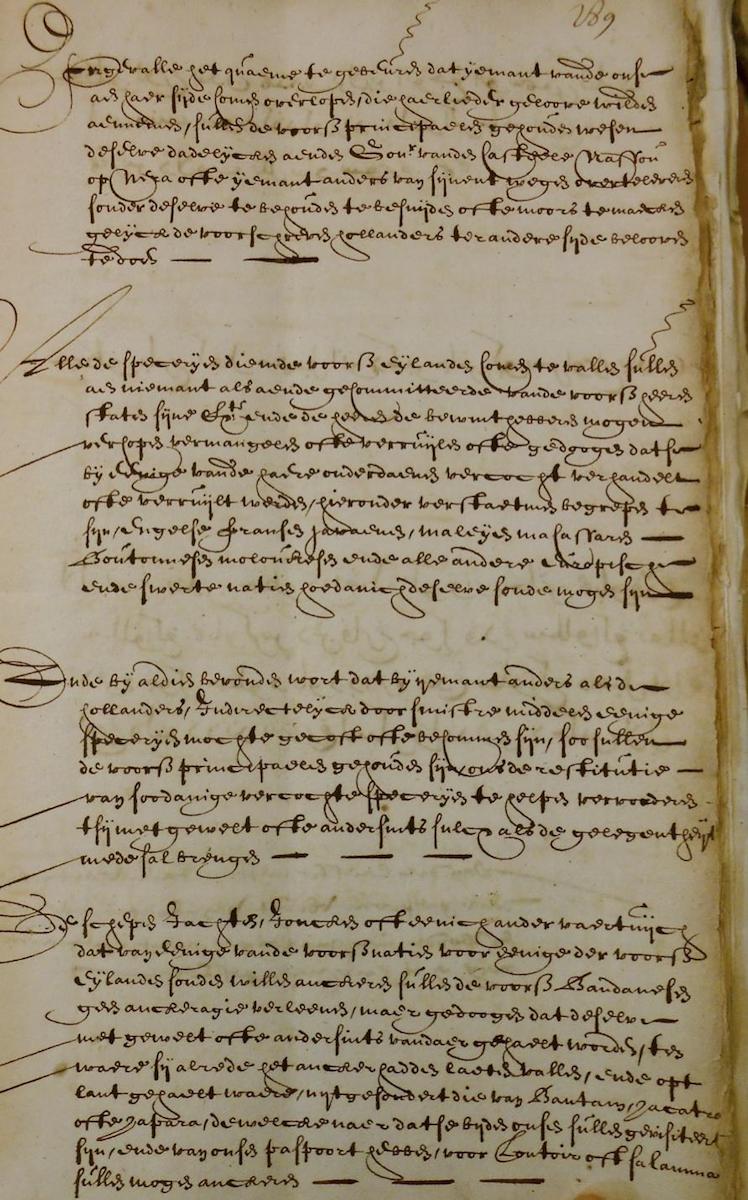Treaties Between the VOC and the Spice Islands
Annotation
The Amboyna trial was a famous conspiracy case that took place in 1623 when a group of Japanese mercenaries were accused of plotting with English merchants to seize control of a Dutch fort on a remote island in Southeast Asia. Despite occurring thousands of miles away in an unfamiliar part of the world, the trial on Amboyna swiftly escalated to become one of the most famous legal cases of the age in Europe and the subject of a long-running dispute between the Dutch and the English governments. The case is a notable episode in the wider war over spices in Southeast Asia.
Founded in 1602, the Vereenigde Oost-Indische Compagnie (VOC) was engineered by officials attached to the Dutch state who compelled the merger of a number of smaller trading organizations to form the VOC. The Dutch Company was equipped with expansive powers which turned it into a hybrid organization, part company and part state. The company’s foundational document gave the VOC sovereign rights of the kind more conventionally monopolized by the state, such as powers to wage war and to conduct diplomacy.
The VOC used treaties such as this one, which was signed with the leaders of the Banda islands, to secure control over precious spices. When they arrived in Asia, VOC captains and ambassadors carefully and deliberately positioned themselves as the protectors of vulnerable local rulers against the aggressive incursions of Portugal and Spain. In return, the recipients of VOC protection were required to pay tribute by pledging to hand over their harvests of precious spices, such as nutmeg and cloves, to the Company at a fixed price. The protection/tribute exchange found concrete form in dozens of treaties signed between the Company and rulers across the region. These treaties enabled VOC officials to seize control over large parts of the spice trade. Once the VOC had rights to a particular crop, it could use force to defend those rights. This frequently resulted in the steady expansion of Dutch control throughout Southeast Asia.
Translation
Contract made between Jan Dirckszoon Lam, council of Indies and commander of the fleet, as representative of the High and Might Lord States General, His Excellency and the Lord Directors of the United East Indies Company with the with the orangkayas or principals and other inhabitants of Bandaneira, Puloai, Pulo Run and Rosseingein… All spices that fall in the island, shall be sold, traded or exchanged to no one but the representatives of the States-General, His Excellency and the Directors. This includes the English, French, Javanese, Malays, Makassars, Botonese and other Europeans and black nations, whoever they are. And if it is found that some others than the Hollanders have gained spices through indirect or sinister methods, the abovementioned Bandanese shall help make restitution, with violence or otherwise, such as the circumstances allow.
Credits
Contract bij commandeur Jan Dircksz. Lam met de vijf eijlanden van Banda, Nera, Poelewaij, Poderon ende Rossengijn in dato 3 Meij 1616, VOC 1072, De archieven van de Verenigde Oostindische Compagnie, Nationaal Archief, Den Haag.
